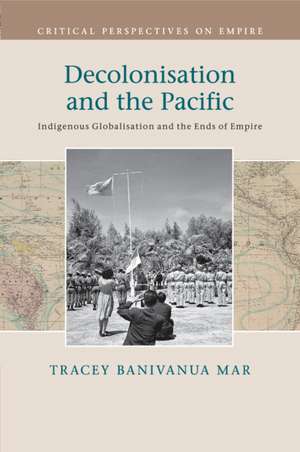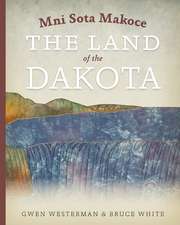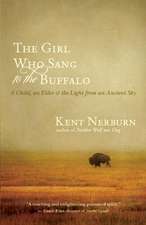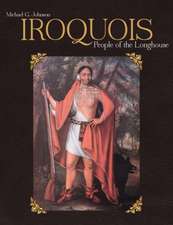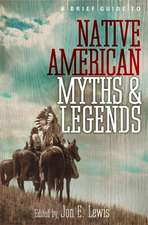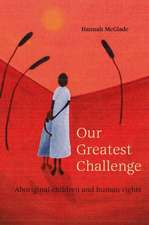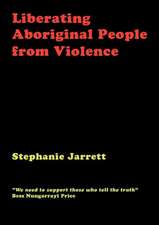Decolonisation and the Pacific: Indigenous Globalisation and the Ends of Empire: Critical Perspectives on Empire
Autor Tracey Banivanua Maren Limba Engleză Paperback – 20 feb 2019
| Toate formatele și edițiile | Preț | Express |
|---|---|---|
| Paperback (1) | 222.86 lei 6-8 săpt. | |
| Cambridge University Press – 20 feb 2019 | 222.86 lei 6-8 săpt. | |
| Hardback (1) | 693.51 lei 6-8 săpt. | |
| Cambridge University Press – 25 apr 2016 | 693.51 lei 6-8 săpt. |
Din seria Critical Perspectives on Empire
- 9%
 Preț: 662.84 lei
Preț: 662.84 lei -
 Preț: 291.69 lei
Preț: 291.69 lei -
 Preț: 299.41 lei
Preț: 299.41 lei -
 Preț: 159.35 lei
Preț: 159.35 lei -
 Preț: 230.34 lei
Preț: 230.34 lei - 5%
 Preț: 219.29 lei
Preț: 219.29 lei -
 Preț: 232.91 lei
Preț: 232.91 lei - 9%
 Preț: 629.31 lei
Preț: 629.31 lei -
 Preț: 279.30 lei
Preț: 279.30 lei -
 Preț: 259.43 lei
Preț: 259.43 lei -
 Preț: 235.13 lei
Preț: 235.13 lei -
 Preț: 227.65 lei
Preț: 227.65 lei -
 Preț: 239.11 lei
Preț: 239.11 lei -
 Preț: 261.35 lei
Preț: 261.35 lei -
 Preț: 246.91 lei
Preț: 246.91 lei -
 Preț: 286.30 lei
Preț: 286.30 lei -
 Preț: 266.22 lei
Preț: 266.22 lei -
 Preț: 304.19 lei
Preț: 304.19 lei -
 Preț: 195.48 lei
Preț: 195.48 lei -
 Preț: 285.37 lei
Preț: 285.37 lei -
 Preț: 325.16 lei
Preț: 325.16 lei - 11%
 Preț: 584.90 lei
Preț: 584.90 lei -
 Preț: 361.54 lei
Preț: 361.54 lei - 11%
 Preț: 584.57 lei
Preț: 584.57 lei -
 Preț: 321.31 lei
Preț: 321.31 lei - 11%
 Preț: 626.27 lei
Preț: 626.27 lei -
 Preț: 324.79 lei
Preț: 324.79 lei -
 Preț: 208.89 lei
Preț: 208.89 lei -
 Preț: 286.51 lei
Preț: 286.51 lei -
 Preț: 326.92 lei
Preț: 326.92 lei -
 Preț: 285.54 lei
Preț: 285.54 lei
Preț: 222.86 lei
Nou
Puncte Express: 334
Preț estimativ în valută:
42.65€ • 44.67$ • 35.34£
42.65€ • 44.67$ • 35.34£
Carte tipărită la comandă
Livrare economică 09-23 aprilie
Preluare comenzi: 021 569.72.76
Specificații
ISBN-13: 9781108705783
ISBN-10: 1108705782
Pagini: 277
Dimensiuni: 151 x 228 x 14 mm
Greutate: 0.38 kg
Editura: Cambridge University Press
Colecția Cambridge University Press
Seria Critical Perspectives on Empire
Locul publicării:Cambridge, United Kingdom
ISBN-10: 1108705782
Pagini: 277
Dimensiuni: 151 x 228 x 14 mm
Greutate: 0.38 kg
Editura: Cambridge University Press
Colecția Cambridge University Press
Seria Critical Perspectives on Empire
Locul publicării:Cambridge, United Kingdom
Cuprins
Introduction: sailing the winds of change: decolonisation and the Pacific; 1. Borders: the colonisation of mobile worlds; 2. Currents: the well springs of decolonisation; 3. Churn: restlessness and world government between the wars; 4. Saltwater: the separation of people and territory; 5. Flight: territorial integrity and dependent decolonisation; 6. Black: internalising decolonisation and networks of solidarity; Conclusion: procedural decolonisation and indigenous philosophies of un-colonising; Bibliography; Index.
Recenzii
'This is an arresting and important work - one whose time has come. In a boldly reimagined history of Pacific decolonisation as a struggle over not only territories, but bodies, minds, and cultures, Tracey Banivanua Mar shows us how Oceanic peoples engaged with a world-wide political consciousness, committed to asserting their own histories and futures. Through a deeply researched array of sources and characters, she illuminates the ways that local struggles for self-determination were also contests for global change.' Matt K. Matsuda, Rutgers University, New Jersey
'Several generations of Pacific historians have produced fine studies of colonial experience, from the eighteenth century through to the early twentieth. No one has previously attempted what this outstanding book delivers: an absorbing comparative account of the succeeding chapters in the history of the Pacific; in particular, the heterogeneous story of empire's still-incomplete undoing. Drawing together engaging micro-histories and incisive analyses of broader patterns, Banivanua Mar's Decolonisation and the Pacific helps reinvent Pacific history.' Nicholas Thomas, University of Cambridge
'At last a history of decolonisation in the Pacific from an Indigenous perspective that makes us rethink conventional understandings of the process of decolonisation itself: what it is, should be and was. With a focus on peoples, rather than territories or nation-states, this brilliant study takes us beyond the 'imperial turn' to focus on the Oceanic networks forged by colonised peoples in the context of global liberation struggles. Creatively imagined and beautifully written, this landmark work will transform our understanding of colonialism and decolonising movements in the Pacific world.' Marilyn Lake, University of Melbourne
'Tracey Banivanua Mar has delivered a rich, meticulously researched and engaging read examining the little-known history of decolonisation in the Pacific. This publication delivers Indigenous groups across the Pacific from the historical binds of colonialism as resourceful innovators pushing social and political ideas that challenged the powers that be.' John Maynard, University of Newcastle
'This is an entirely new, rich and provocative rendition of what decolonisation means, the respects in which it is ongoing, and how it has been shaped. Beginning and ending with the struggle against nuclear testing in the Pacific, Banivanua Mar alerts us to diasporic Indigenous peoples' utilisation of trans-Oceanic networks to contest and undo colonialism across a large swathe of the Earth's surface.' Alan Lester, University of Sussex
'In this ambitious and exciting book, Tracey Banivanua Mar manages not only to recover the histories of those she calls 'decolonisation's forgotten people', but in so doing, to reshape how we think about decolonisation itself. Banivanua Mar shows that decolonisation for the indigenous inhabitants of the Pacific was a struggle that transcended the nation-state, assuming a transnational thrust that sought liberation in culture and consciousness no less than in politics and power.' Dane Kennedy, George Washington University, Washington DC
'In this painstakingly researched and deeply principled history, Tracey Banivanua Mar shows us how and why we need to reposition decolonisation narratives to account for the time and space of the Pacific.' Antoinette Burton, The Journal of Pacific History
'Banivanua Mar has produced a powerfully written and exciting thesis that claims a long and vivid history of distinct and innovative forms of resistance and decolonisation across Oceania.' Helen Gardner, The Journal of Pacific History
'It is a landmark study that we should enthusiastically endorse and recommend. Let me be one of the first native scholars to thank her for producing such a wonderful example of Pacific history.' Keith L. Camacho, The Journal of Pacific History
'Driven by her own ethics, clearly influenced by postcolonial and feminist politics, Tracey brought people and their principles to the centre of the book …' Kirstie Close-Berry, Australian Historical Studies
'This is a brave book, considering its expansive time frame and geographic scope, but it is intellectually sophisticated, coherently reasoned, and superbly researched.' David Chappell, Journal of World History
'… this thoughtful book advances new and persuasive ideas about the history of Australasia and Oceania, and about decolonisation which are sure to inspire further discussion.' Robert Aldrich, The English Historical Review
'The book is beautifully written. Chapter titles include words like currents and churn, saltwater and flight and reflect the oceanic geography essential to the book. Story is artfully deployed, creating interest as new chapters begin, yet skilfully opening lines of analysis.' Steve Taylor, Mission Studies
'Several generations of Pacific historians have produced fine studies of colonial experience, from the eighteenth century through to the early twentieth. No one has previously attempted what this outstanding book delivers: an absorbing comparative account of the succeeding chapters in the history of the Pacific; in particular, the heterogeneous story of empire's still-incomplete undoing. Drawing together engaging micro-histories and incisive analyses of broader patterns, Banivanua Mar's Decolonisation and the Pacific helps reinvent Pacific history.' Nicholas Thomas, University of Cambridge
'At last a history of decolonisation in the Pacific from an Indigenous perspective that makes us rethink conventional understandings of the process of decolonisation itself: what it is, should be and was. With a focus on peoples, rather than territories or nation-states, this brilliant study takes us beyond the 'imperial turn' to focus on the Oceanic networks forged by colonised peoples in the context of global liberation struggles. Creatively imagined and beautifully written, this landmark work will transform our understanding of colonialism and decolonising movements in the Pacific world.' Marilyn Lake, University of Melbourne
'Tracey Banivanua Mar has delivered a rich, meticulously researched and engaging read examining the little-known history of decolonisation in the Pacific. This publication delivers Indigenous groups across the Pacific from the historical binds of colonialism as resourceful innovators pushing social and political ideas that challenged the powers that be.' John Maynard, University of Newcastle
'This is an entirely new, rich and provocative rendition of what decolonisation means, the respects in which it is ongoing, and how it has been shaped. Beginning and ending with the struggle against nuclear testing in the Pacific, Banivanua Mar alerts us to diasporic Indigenous peoples' utilisation of trans-Oceanic networks to contest and undo colonialism across a large swathe of the Earth's surface.' Alan Lester, University of Sussex
'In this ambitious and exciting book, Tracey Banivanua Mar manages not only to recover the histories of those she calls 'decolonisation's forgotten people', but in so doing, to reshape how we think about decolonisation itself. Banivanua Mar shows that decolonisation for the indigenous inhabitants of the Pacific was a struggle that transcended the nation-state, assuming a transnational thrust that sought liberation in culture and consciousness no less than in politics and power.' Dane Kennedy, George Washington University, Washington DC
'In this painstakingly researched and deeply principled history, Tracey Banivanua Mar shows us how and why we need to reposition decolonisation narratives to account for the time and space of the Pacific.' Antoinette Burton, The Journal of Pacific History
'Banivanua Mar has produced a powerfully written and exciting thesis that claims a long and vivid history of distinct and innovative forms of resistance and decolonisation across Oceania.' Helen Gardner, The Journal of Pacific History
'It is a landmark study that we should enthusiastically endorse and recommend. Let me be one of the first native scholars to thank her for producing such a wonderful example of Pacific history.' Keith L. Camacho, The Journal of Pacific History
'Driven by her own ethics, clearly influenced by postcolonial and feminist politics, Tracey brought people and their principles to the centre of the book …' Kirstie Close-Berry, Australian Historical Studies
'This is a brave book, considering its expansive time frame and geographic scope, but it is intellectually sophisticated, coherently reasoned, and superbly researched.' David Chappell, Journal of World History
'… this thoughtful book advances new and persuasive ideas about the history of Australasia and Oceania, and about decolonisation which are sure to inspire further discussion.' Robert Aldrich, The English Historical Review
'The book is beautifully written. Chapter titles include words like currents and churn, saltwater and flight and reflect the oceanic geography essential to the book. Story is artfully deployed, creating interest as new chapters begin, yet skilfully opening lines of analysis.' Steve Taylor, Mission Studies
Notă biografică
Descriere
This book charts the previously untold story of the mobility of Indigenous peoples across vast distances, vividly reshaping what is known about decolonisation.
